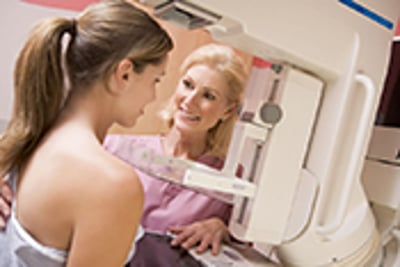FORCE's eXamining the Relevance of Articles for You (XRAY) program looks behind the headlines of cancer news to help you understand what the research means for you.
XRAY is a reliable source of hereditary cancer research-related news and information.
Learn more about the XRAY program
In portal: Breast Cancer, Categories Screening
Relevance: Medium-High


Strength of Science: Medium-High


Study : Breast cancer risk increases modestly after childbirth
Relevance: Medium-High


Strength of Science: Medium-High


Most relevant for: Women in their childbearing years
Does having children alter the risk of breast cancer? Women who give birth have a lower lifetime risk of breast cancer. However, newer data suggests that breast cancer risk increases immediately after childbirth. A study published in December 2018 examines data from the Premenopausal Breast Cancer Collective Group seeking to clarify this issue. (12/28/18)
Read More
Relevance: High


Strength of Science: High


Research Timeline: Post Approval


Study : Can population-based DNA sequencing find more people at risk for hereditary cancers?
Relevance: High


Strength of Science: High


Research Timeline: Post Approval


Most relevant for: Women over age 30
It is well documented that many BRCA mutation carriers are missed using current family history-based screening approaches. As a result, experts are beginning to call for population-based BRCA genetic testing—an organized effort to screen all women like we do for breast and cervical cancer. A recent study looked at whether a population-based genetic testing approach would better identify mutation carriers compared with current practice. (11/17/18)
Read More
Relevance: Medium-High


Quality of Writing: Medium-High


Article : Cancer experience in families affects decision making
Relevance: Medium-High


Quality of Writing: Medium-High


Most relevant for: Women with an inherited mutation linked to increased risk for cancer
Women with inherited mutations in genes that increase breast and ovarian cancer risk have an additional challenge: coping with how those mutations impact their families and how a family member’s cancer experience can shape their own perception. In a recent U.S. News and World Report article, Elaine Howley explores how a woman's decisions about healthcare, cancer prevention and treatment are affected by experience with cancer in the family. (9/25/18)
Read More
Relevance: High


Strength of Science: High


Research Timeline: Post Approval


Study : Disparities in research impact breast screening guidelines
Relevance: High


Strength of Science: High


Research Timeline: Post Approval


Most relevant for: Women at average risk for breast cancer
For women at average risk of breast cancer, the United States Preventive Services Task Force (USPSTF) currently recommends beginning annual breast cancer screening at age 50. However, because these guidelines are largely based on data from white women, they may not be sensitive to racial differences. A new study assesses the age distribution of breast cancer cases across race/ethnicity in the U.S. (6/21/18)
Read More
Relevance: Medium-High


Strength of Science: Medium-High


Research Timeline: Human Research


Study : Mutations in Lynch syndrome genes MSH6 and PMS2 may be associated with breast cancer
Relevance: Medium-High


Strength of Science: Medium-High


Research Timeline: Human Research


Most relevant for: Women with an MSH6 or PMS2 mutation
Some women with mutations in MSH6 and PMS2, two Lynch syndrome genes, may have a modest (2 to 3-fold) increased risk for breast cancer. (6/14/18 updated 09/25/19)
Read More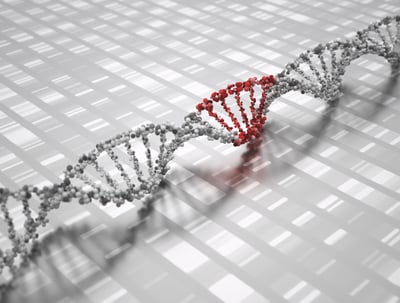
Relevance: Medium-High


Strength of Science: Medium


Study : Take your time, follow your heart: strategies for communication about family planning
Relevance: Medium-High


Strength of Science: Medium


Most relevant for: Young high risk women
When a woman is newly diagnosed with a BRCA mutation, she faces many risk management decisions. Although many of these decisions impact family planning, little guidance is available on how to communicate this information. This study examines female previvors’ advice on effective strategies for discussing family planning decisions. (03/28/18)
Read More
Relevance: High


Strength of Science: High


Research Timeline: Post Approval


Study : Should biannual MRIs replace annual mammograms in high-risk women?
Relevance: High


Strength of Science: High


Research Timeline: Post Approval


Most relevant for: Women at increased risk for breast cancer due to an inherited mutation
The risk of breast cancer is exceptionally high in women who have a personal or family history of breast cancer or who carry a mutation in BRCA or certain other genes. More frequent screening is one strategy for early detection of breast cancer for these women. Study results presented at the 2017 San Antonio Breast Cancer Symposium suggest that MRI screening every 6 months may be more effective than the currently recommended annual breast MRI and annual mammogram in detecting early stage breast cancers-which are more treatable-in high-risk women. (2/1/18)
Read More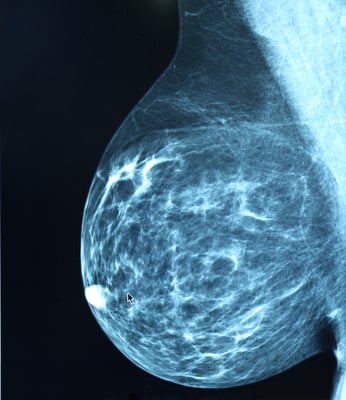
Relevance: Medium-High


Quality of Writing: High


Article : Dense breasts and mammograms: Jill Goodacre’s story
Relevance: Medium-High


Quality of Writing: High


Most relevant for: Women with dense breast tissue on mammograms
Korin Miller’s piece for SELF magazine focuses on why women with dense breasts may need more than a screening mammogram. Miller highlights the recent story in People magazine of Jill Goodacre, a former Victoria’s Secret model and the wife of recording artist and talk show host Harry Connick Jr. Goodacre told of her breast cancer diagnosis 5 years ago after having additional screening of her dense breast tissue following a normal mammogram. (12/8/17)
Read More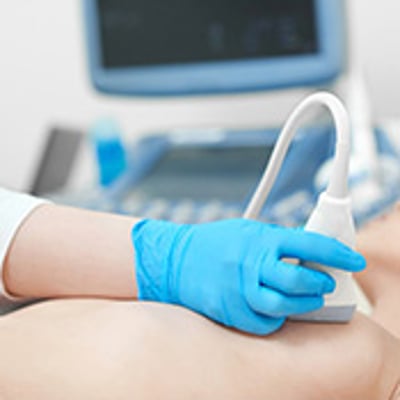
Relevance: Medium


Strength of Science: Medium


Research Timeline: Post Approval


Study : Do physicians recommend breast cancer screenings based on guidelines?
Relevance: Medium


Strength of Science: Medium


Research Timeline: Post Approval


Most relevant for: Women at average risk for breast cancer
Several guidelines help physicians decide when a woman should begin screening for breast cancer and how often she should be screened. However, are these guidelines put into use in the clinic? (8/8/17)
Read More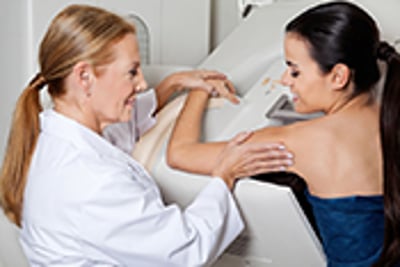
Relevance: Medium-High


Strength of Science: Medium-Low


Study : Routine breast cancer screening leads to overdiagnosis
Relevance: Medium-High


Strength of Science: Medium-Low


Most relevant for: Women at average risk for breast cancer
Routine breast cancer screening for women of average risk has been controversial for many years because some believe that the benefits do not outweigh the risks. Recent headlines covering a study in Denmark suggests that routine breast cancer screening leads to “overdiagnosis” of breast cancer. (4/4/17)
Read More